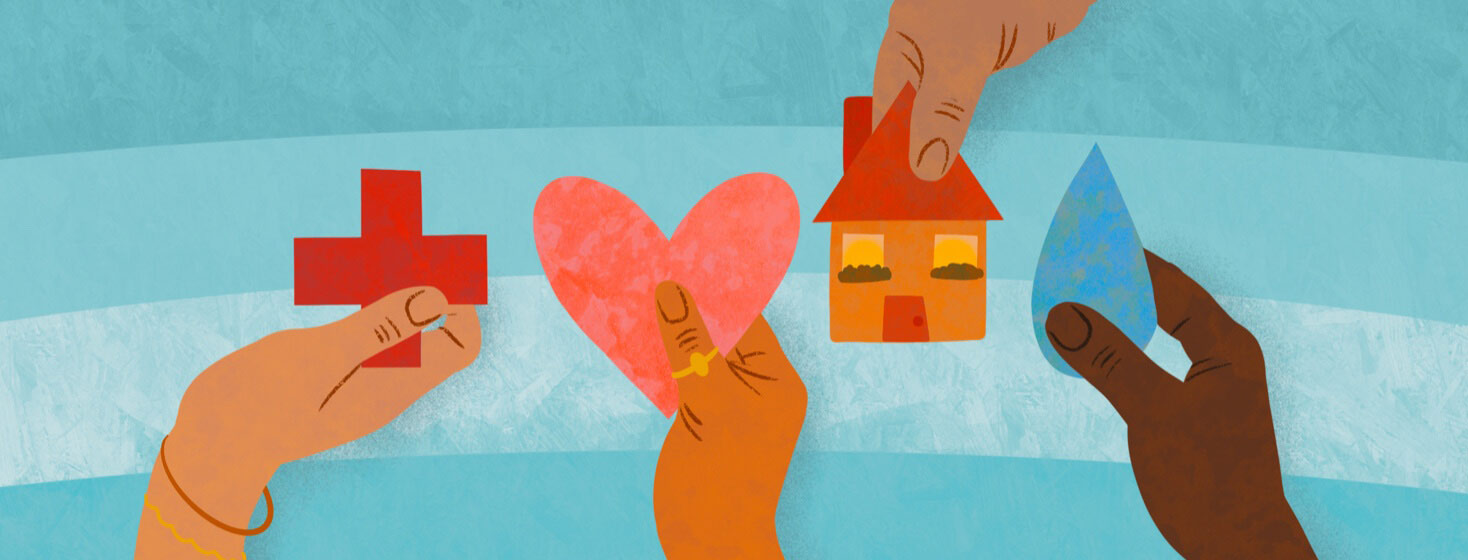What Is It Really Like to Be a Caregiver? Results of the 2020 Caregiving In America Survey
When faced with a chronic health condition like blood cancer, many people rely on the help and support of a caregiver. In many ways, the family members, partners, and friends who serve as caregivers are unspoken heroes, helping those with chronic health conditions to cope with challenges and lead healthier lives. To better understand the unique experiences, needs, and strengths of caregivers – and to highlight the critical role they play – we conducted our 2020 Caregiving In America Survey. More than 500 caregivers shared their stories.
Who are the caregivers?
Caregivers come from a variety of backgrounds, providing care to people living with many different chronic health conditions, from Parkinson’s disease to blood cancer. When looking at current caregivers, the majority are female, 60 years of age or older, and have been caring for a person for more than 2 years. While 78 percent of current caregivers provide care for their spouse or significant other, other caregivers are parents, children, and siblings to those in need. Additionally, 12 percent of current caregivers are providing care to more than 1 person, and 88 percent live with the person for whom they provide care.
What care do they provide?
Caregivers provide many different types of care, with attending doctor’s appointments and providing emotional support being the most common. More than 80 percent of caregivers are involved in treatment plan decisions, and 30 percent of people need assistance to complete personal and/or daily life tasks. Caregivers provide an average of 29.2 hours of care per week, showing just how critical they truly are.
What do caregivers need?
While caregivers assist people with a wide range of needs, what about the caregivers? What do they need?
- While emotional support is the leading reason why people seek help from a caregiver, 60 percent of caregivers are looking for their own emotional support.
- 49 percent of caregivers want to learn how to create time for themselves to rest/rejuvenate, but, currently, only 22 percent of caregivers make time for themselves to rest and relax.*
Being a caregiver can also be emotionally draining. Nearly 7 in 10 caregivers worry about the future of the person they are caring for,* and 30 percent worry that they are not doing enough to help.*
Caregiving: Challenging but rewarding
While being a caregiver can be challenging, many of you shared that this role brings benefits too. When asked what aspects of caregiving they find rewarding or special, caregivers spoke of:
- Spending time with a loved one
- Feeling needed and finding a sense of purpose
- Building a deeper bond with the patient
- The impact of learning how strong they really are
There is no doubt that caregivers play an incredible role in helping people manage their chronic health conditions. To all the caregivers out there: THANK YOU for everything you do.
*Top 2 responses on 7-point scale
The 2020 Caregiver In America survey was conducted online from September 18, 2019 through August 25, 2020. Of the 577 people who completed the survey, 348 are current caregivers, 36 are past caregivers for someone who is alive, and 193 are past caregivers for someone who is now deceased.

Join the conversation